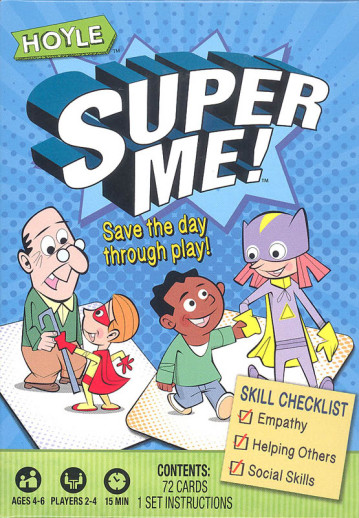We use cookies to make your experience better. To comply with the new e-Privacy directive, we need to ask for your consent to set the cookies. Learn more.
Super Me Card Game
You don't have to be grown-up to change the world in big ways! This card game teaches children about empathy, helping others, and social skills. It plays a bit like Memory, only players hold the matches in their hands. The 24 Emergency cards are laid face down on the table in a grid, and then each player is dealt Super Me! cards. On your turn, flip over an Emergency card, and look in your hand for the matching card that will show a child superhero solving the problem. If you don't have the match in your hand, turn the Emergency card back over and play continues to the next player. Keep an eye out and remember where the Emergency cards are that match the cards in your hand! The first player to match all of their Super Me! cards wins the game. A second level of play challenges children to come up with solutions to the emergencies by themselves. 2-4 players, game time is approximately 15 minutes. ~ Megan
- Super Me helps kids learn empathy, helping others and social skills
- Simple to set up, easy to learn and can be played in 15 minutes or less
- For 2-4 players, ages 4 to 6
- Two levels of challenging play so you never get bored

